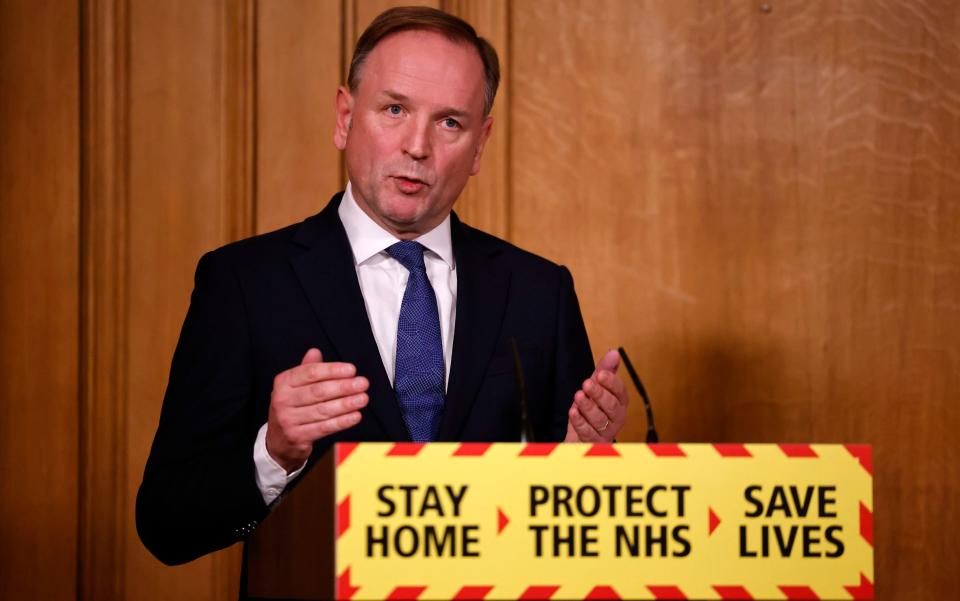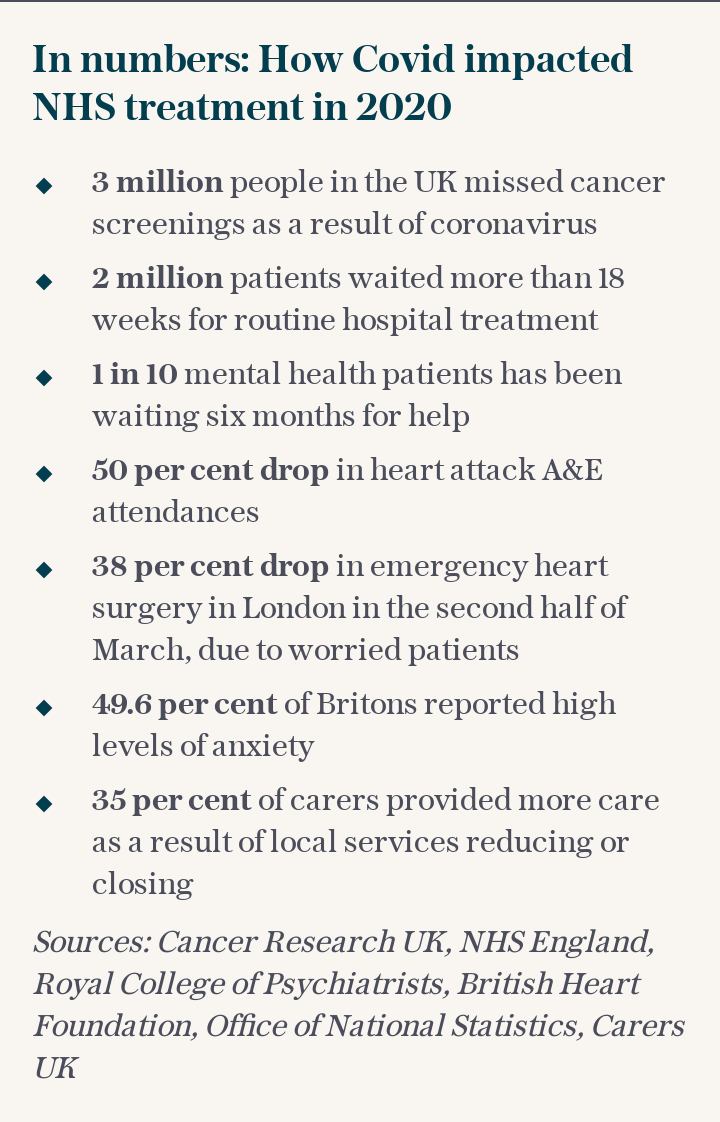Cancer surgery delays are biggest concern as services struggle with Covid, says NHS chief


Delays to cancer surgery are one of the biggest concerns facing NHS chiefs as services struggle to cope with the impact of the pandemic, the head of England's health service has said.
Sir Simon Stevens highlighted his concerns after figures showed hundreds fewer cancer operations being carried out this month compared with the same time last year.
The statistics, reported by Health Service Journal, suggest that in total there were 800 fewer cancer operations in the first two weeks of January compared with the same time last year. The figures suggest London and the Home Counties were worst hit, with the number of operations down by one third.
Sir Simon said he was particularly worried about delays for those in such urgent need that tumours should be removed within a month.
Asked about the impact of the pandemic on other services he told MPs: "The area we are most concerned about is cancer surgery. Chemotherapy and radiotherapy, I think, are continuing, and for the most part in an uninterrupted fashion."

Sir Simon told MPs on the health and social care committee that there was a "huge focus" on ensuring that services for those requiring urgent cancer surgery were sustained and said: "There's particular pressure on anaesthetists at the moment, many of whom are being diverted to help the critical care surge for coronavirus patients."
He also raised hopes of a return to "a much more normal future" thanks to medical advances, with the prospect that Covid could become a "much more treatable disease" over the next six to 18 months. He told MPs he hoped more treatments for Covid-19 would come on stream which, coupled with vaccination, would see a turn for the better.
"The first half of the year, vaccination is going to be crucial," he said. "I think a lot of us in the health service are increasingly hopeful that the second half of the year and beyond we will also see more therapeutics and more treatments for coronavirus."
Sir Simon said there were a number of potential new treatments in the pipeline "and I think it is possible that over the course of the next six to 18 months, coronavirus becomes a much more treatable disease with antivirals and other therapies, which alongside the vaccination programme holds out the hope of a return to a much more normal future."
Half of those aged 75 to 79 have now had the Covid vaccine, along with four in five of those aged 80 and over, he told MPs, saying that when the bulk of each cohort is done anyone who has not been contacted should come forward to ask for a jab.
Health sources said the figures, from weekly activity returns data, were consistently under-reported, with totals likely to rise once fuller data was provided.
An NHS England spokesman said: "The most recent, complete data shows that cancer surgery in November was at 94 per cent of the level it was in 2019, and figures for after this point do not reflect the full picture of surgery that took place."

 Yahoo News
Yahoo News 